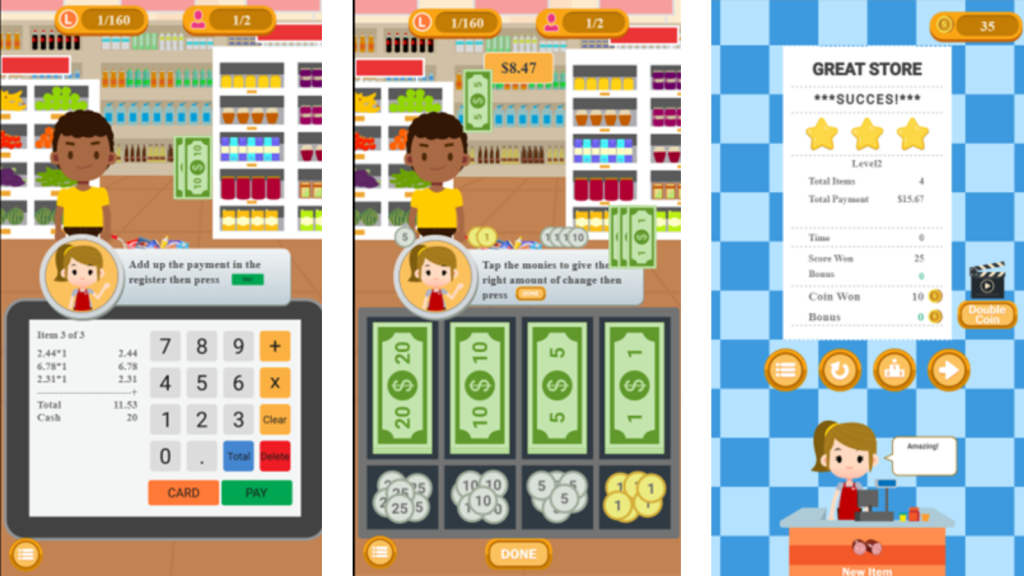I would consider myself to have always been pretty savvy with money, going right back to when we were kids. I practised an early version of the ’emergency fund’ even when I was just getting a pound or two a week for pocket money. I’d always make sure that I had at least £15 kept back in my room, ‘just in case’. And when I was given a £5 note for holiday spends by my grandparents, that money wasn’t going on just anything! Oh no, it had to be a special purchase that was going to see me break into that note.
The financial impact on my business
Fast forward thirty years and my financial savviness has meant that I have been able to keep my business profitable for the past eight years. I have taken it through a pandemic, navigating a loss of 90% income for a while and even used the down time to diversify my income streams.
I use spreadsheets and trackers to record income and expenditure, which allows me to plan ahead to cover dips in income and reduce expenditure where necessary.
For example, I lost two hours work a week recently when a six month contract came to an end. To counteract this temporary reduction in income, I am no longer hiring a hot desk in a business centre. If I feel the need to work out of the house, then I go to a local Costa and the price of a drink is a fraction of the cost of a hot desk which has recently increased due to inflation.
I also put away money on a monthly basis to cover my annual tax return, and that money is kept in a high-interest account to maximise returns.
No one has taught me how to do this – I have just accumulated the knowledge from reading and what I feel is common sense. But it must have come from somewhere??
So, where did my financial education come from?
No one really knows! This is something that I was talking to my parents about just last week. I was chatting about mortgage interest rates which are all over the news at the moment, sharing my concerns about when we come out of our fixed term next year and our plan for starting to put some money aside now to cover the increase as we get closer.
They then reminisced about how savvy I have always been with money. Making money when we were kids by holding sales in my bedroom for them and my sister. Then having a bumper summer one year at uni by buying chunky belts for £2 from Primark and selling on Ebay for about £20 each time!! I seemingly was always destined to have my own business. But no one has a clue how I ended up that way….
I wasn’t actually very good at ‘Maths’
Maths was my worst GCSE grade. Every other subject was either an A*, A or B with the exception of Maths, which was a C. Now I know isn’t bad at all, but it was my worst subject.
But Maths wasn’t about the practical application in every day life as I remember it, it was all ‘a=bxc+1, so what is d’ kind of questions which I could never get my head round. If we weretaught payslips, mortgage rates, interest rates, budgeting, pension planning, business profit and loss, then I reckon I would have been top of the class! Can anyone ever remember being taught real-life maths, because I can’t!
Are kids taught how to manage their money these days?
Honestly, I have absolutely no idea! Both of my girls receive pocket money and have savings account where money from birthdays and Christmas etc go. I have talked to them about why I closed their old savings accounts recently and opened them with another provider. I explained it was about interest rates being better and what that meant for their money etc.
Real life examples for kids to talk about money
We are open and frank with them about household money when they ask questions. Being inquisitive kids, they are all about the questions! My eldest is 12 and has had questions about how people buy houses, so we’ve talked mortgages. She also takes a keen interest in my business and recently made her own bracelets to sell for charity. It made her appreciate the need for carefully balancing costs versus sale prices.
My youngest who is 8, chats a lot about the cost of food as we regularly frequent the clearance section of the Co-op next door to her dance school! We’ll always have a good nosey if I’m popping in to pick up a couple of bits. She is used to bags of doughnuts for 40p and sausages for 75p, so on a recent trip to Sainsburys she was utterly horrified looking at the prices in the biscuits aisle – “£2.20 for cookies Mum???? £2.20!!!!!”
It’s been handy to find a website which has loads of free money games that expand their interests further….
My youngest has loved playing a Cashier Simulator game, which built on some homework she had brought home from school. But in a much more fun and interactive way! She pretended like she worked in the shop and had to ring the items up. You then total them and then work out how much change to give the customer.

My eldest is addicted to a coffee shop game where she has to work out how much stock to buy, how much to use in a recipe for coffee and what selling price to set, also taking the weather and customer feedback into consideration.
It’s a perfect way to introduce her to the business world in a fun, light-hearted way but with some real takeaway lessons as well!

In conclusion
When I was a trainer in Hospitality, I also taught functional Maths qualifications. We had to embed the skills into their daily jobs. So if someone was a bar tender, talking about ratios in terms of drinks in cocktails. Or using tips on bills as examples to teach percentages.
It can be the same with your own kids and money. It doesn’t have to be formal like in school. You can just chat to them daily whilst going about your normal activities and they can be learning at home. It will all help build their skills, knowledge and confidence. So if they decide to follow you into business, they will be equipped with a basic, solid financial grounding.
